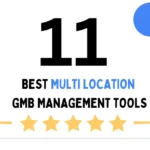Budgeting isn’t just for finance geeks or spreadsheet lovers anymore. In today’s fast-paced world, especially for renters juggling rising living costs, budgeting has become a life skill. Whether you’re renting your first apartment or settling into your third lease, managing your money smartly can make the difference between living paycheck to paycheck and building financial freedom.
Let’s dive into the smartest budgeting moves every modern renter should know—and how a few smart decisions can lead to long-term savings.
1. Track Before You Tweak
Before you can save, you need to know where your money is going. Use an app like Mint, YNAB (You Need a Budget), or even a basic Excel sheet to track every dollar you spend for at least one month. Categorize your expenses: rent, groceries, dining out, streaming subscriptions, utilities, and transportation.
Seeing the breakdown often highlights easy wins—like unused subscriptions or impulse food delivery orders. Once you’re aware of your habits, you can start cutting the fat.
2. Use the 50/30/20 Rule
This classic budgeting method divides your monthly income into three buckets:
- 50% for needs (rent, utilities, groceries)
- 30% for wants (eating out, travel, entertainment)
- 20% for savings and debt repayment
It’s a flexible but structured way to keep spending in check while ensuring you’re saving consistently. If your rent is eating more than 50% of your income, it might be time to reassess your living situation or boost your income.
3. Automate Your Finances
One of the easiest ways to stick to a budget is to automate it. Set up auto-transfers to your savings right after payday. You can also automate bill payments to avoid late fees and ensure your credit score remains healthy.
Tip: Set up a separate high-yield savings account for different goals—like a vacation fund, emergency savings, or a future home down payment.
4. Cut Utility Costs Creatively
Renters often assume they have little control over utility bills, but that’s not entirely true. Simple changes like switching to LED bulbs, using a programmable thermostat (if allowed), unplugging unused devices, and sealing window drafts can significantly lower your electricity bill.
Also, check if your building offers any green incentives or energy-efficient appliances—these can make a noticeable difference in monthly expenses.
5. Share and Save
If you’re in a roommate situation, take full advantage of cost-sharing. Split streaming subscriptions, bulk grocery purchases, and cleaning supplies. Use apps like Splitwise to track shared expenses transparently.
Even if you live alone, consider community-shared services like car-sharing or neighborhood bulk-buy groups to reduce costs.
6. Bundle and Save on Essentials
Another often-overlooked budgeting move? Combining your essential services. For instance, when you bundle your renters and car insurance policies, many providers offer significant discounts. This not only simplifies your billing but also can save you hundreds over the year.
Look for providers who reward multi-policy holders or offer smart tech tools to manage your coverage. A bundled policy also helps with easier claims processing if an incident affects both your home and car.
7. Build an Emergency Buffer
Life happens—unexpected medical bills, job loss, or urgent car repairs. Having a rainy-day fund with at least 3–6 months’ worth of essential expenses can prevent a short-term crisis from becoming a long-term financial setback.
Start small if needed. Even saving $10 a week adds up to over $500 a year. The key is consistency, not perfection.
8. Take Advantage of Renter Perks
Many rental buildings now offer perks like referral bonuses, rent discounts for longer leases, or free amenities (like gyms or co-working spaces). Make sure you’re tapping into all available benefits.
Also, consider negotiating with your landlord at lease renewal time. If you’ve been a great tenant, there may be room to lower your rent or lock it in for a longer period.
9. Embrace the Thrift Life
Thrift stores, secondhand marketplaces, and community swaps are goldmines for furniture, decor, and even electronics. You don’t have to sacrifice style—just shop smarter.
Also explore cashback apps like Rakuten or Honey for online purchases, and browser extensions that find coupon codes automatically at checkout.
Final Thoughts
Budgeting doesn’t mean restricting yourself—it’s about creating freedom. By tracking your expenses, using proven methods like the 50/30/20 rule, cutting costs where possible, and making smart choices like bundling renters and car insurance, you’ll gain control over your finances and peace of mind.
Modern renters face unique challenges, but with a proactive mindset and a few simple habits, building financial security is well within reach.
You May Also Like: Tracking Your Refund: Key Timelines for German Pension Refund Payouts











